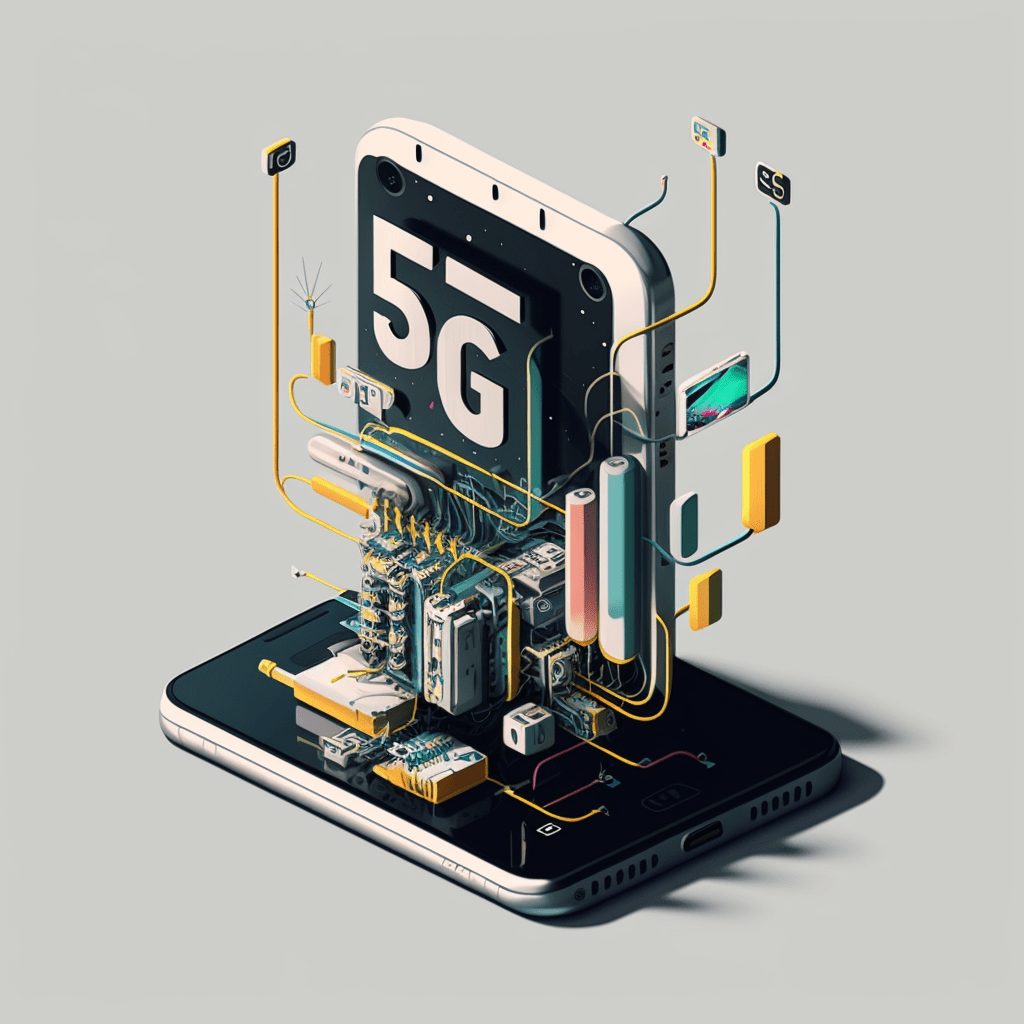5G networks are the latest innovation in telecommunications and they’re set to revolutionize our digital lives. This technology has been called the “game changer” of connectivity, promising faster speeds, increased reliability, and huge capacity – perfect for those tech geeks among us desiring instant gratification when downloading files or watching their favorite shows on streaming services. But what is 5G really? In this blog post, we’ll explore 5G technology so you can get a better appreciation of how it works – from understanding the infrastructure behind it to discovering its potential applications. So if you’ve ever wanted to understand more about 5G without being overwhelmed by complex jargon, keep reading!
What is 5G and how does it work compared to other networks like 4G and 3G
5G is an ultra-fast network that is revolutionizing the way we send and receive data. It’s significantly faster than other networks like 4G and 3G, which makes it great for streaming high-definition video, downloading large files in seconds, and connecting more devices to the internet. What makes 5G superior lies in its ability to send a lot of data at much higher speeds over shorter distances than the other networks. 5G also has reduced latency, allowing for near-instantaneous reactions in real-time applications like virtual gaming and augmented reality. All this adds up to a reliable connection capable of changing how we transact online and creating opportunities no one has ever imagined.
Benefits of 5G technology for businesses, individuals, and governments
5G technology is set to revolutionize the world, offering businesses, individuals, and governments a slew of benefits. Businesses will be able to access data more quickly and accurately due to the reduction in latency, allowing them to make decisions faster with better accuracy. That said, 5G also presents new opportunities for businesses by letting them connect with their customers; real-time analytics and data gathering can help organizations develop better strategies. Individuals stand to benefit from improved connection speeds, leading to a better streaming experience while playing games or watching videos online. Moreover, governments can deploy 5G networks on large scales more quickly and efficiently than before, helping citizens become connected sooner without compromising on performance and user experiences. All in all, 5G looks set to make an impact far greater than any other technology that preceded it.
How 5G networks can revolutionize communication, entertainment, and data transfer speeds
We are on the cusp of a technological revolution. 5G networks are set to revolutionize our lives, enabling us to communicate faster than ever before, enjoy an unprecedented level of entertainment, and experience unmatched data transfer speeds. With 5G providing us with lightning-fast connection speeds, high-definition streaming services like Netflix and YouTube will become the norm. In addition to that, we can expect more mobile devices to have extended battery life and offer incredible capabilities. 5G’s potential doesn’t stop there; it could also provide access both in remote areas and on the go; likely spurring creativity in app development as developers strive to capitalize on this limitless technology. It is clear that by offering a significantly higher speed at lower latency levels than previous network generations, 5G networks are about to make waves in the world of communication, entertainment, and data transfers.
Challenges posed by the implementation of 5G networks
Implementing 5G networks presents a number of challenges. For one, they require a massive investment in infrastructure. This means having to build out more cell sites with new hardware capable of supporting the higher speed and faster response time that 5G requires. Additionally, the rollout must bring new resources in the form of developmental and research staff as well as IT teams responsible for overseeing the network and resolving any potential issues. Lastly, 5G also needs to be properly configured from a software standpoint so that it can reach its full potential as anything less could cause severe performance issues at a time when speed is paramount. The implementation of 5G networks will certainly bring with it many questions, but if handled properly, the high-speed service they offer has tremendous promise.
Countries that have already adopted 5G technology
5G technology is becoming more popular around the world, with many countries already adopting it for its benefits. South Korea was the first to launch a commercial 5G network back in April 2019, followed by China and the United States soon after. Australia and Switzerland have also seen great advancements in 5G implementation. Then there are Japan, Germany, India, France, Canada, and other countries that are quickly catching up. While there have been some issues such as slow connectivity and limited coverage that have hindered adoption in some instances, overall 5G has ushered in a new era of internet speed and quality standards. With so many countries now on board, it looks set to become a global norm.
Predictions for the future of 5G networks worldwide
With the advent of 5G networks, many are predicting a wide range of possibilities for our lives in the future. Since 5G technology has higher speed and reliability capabilities than previous generations of cellular networks, it could power more revolutionary technologies such as self-driving cars, remote medical procedures, and cloud gaming services to name just a few. Depending on where you live, you might be able to experience some of these services in the near future. In addition to the applications, 5G would bring us, its improved infrastructure should mean that through enhanced encryption we’ll have an improved level of security associated with our online activities. All in all, the revolutionary network is set to propel us into a bold new world where almost anything is possible.







